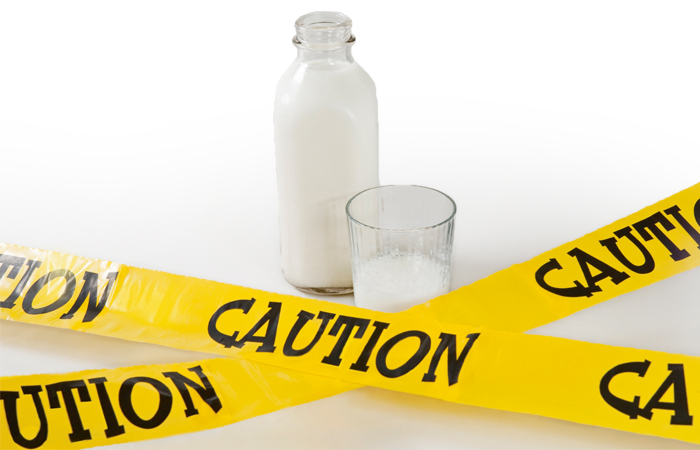5. Lactose intolerance
In Specialist milks
Follow this topic
Bookmark
Record learning outcomes
Food allergies and food intolerances are not the same and it is essential to understand how to distinguish between the two conditions
Allergies and intolerances are not the same. A food allergy is an adverse reaction to the protein component of a food, which evokes an immunological response. When this is severe, it may result in anaphylaxis. An intolerance is an adverse reaction to a ‘non-protein’ component in the food, which does not involve the immune system and reactions may be delayed. The symptoms are often gastrointestinal or skin-related.

Lactose intolerance is caused by a reduced level of the enzyme lactase, which breaks down the lactose in milk so that it can be absorbed into the blood. It is often a temporary problem, lasting between a few days and a few weeks. It can also occur after gastroenteritis – an infection causing vomiting or diarrhoea. It is also thought to be a possible cause of colic.
An intolerance is an adverse reaction to a ‘non-protein’ component in the food
Symptoms
- Bloated stomach, possibly with abdominal pain
- Wind
- Loose stools or diarrhoea
- Mild colic
- Poor weight gain or even weight loss.
Treatment
If a baby might be suffering from lactose intolerance, refer the customer to a pharmacist, who will most likely refer to a GP or health visitor for specialist advice.
Formula milks
Once lactose intolerance has been diagnosed, a lactose-free formula (e.g. Aptamil Lactose Free or SMA LF Lactose Free Formula) may be recommended. These are nutritionally complete milks that can be used from birth for infants who have a congenital or temporary lactase deficiency. These milks taste similar to routine infant formula milk, so babies should not notice a difference.
